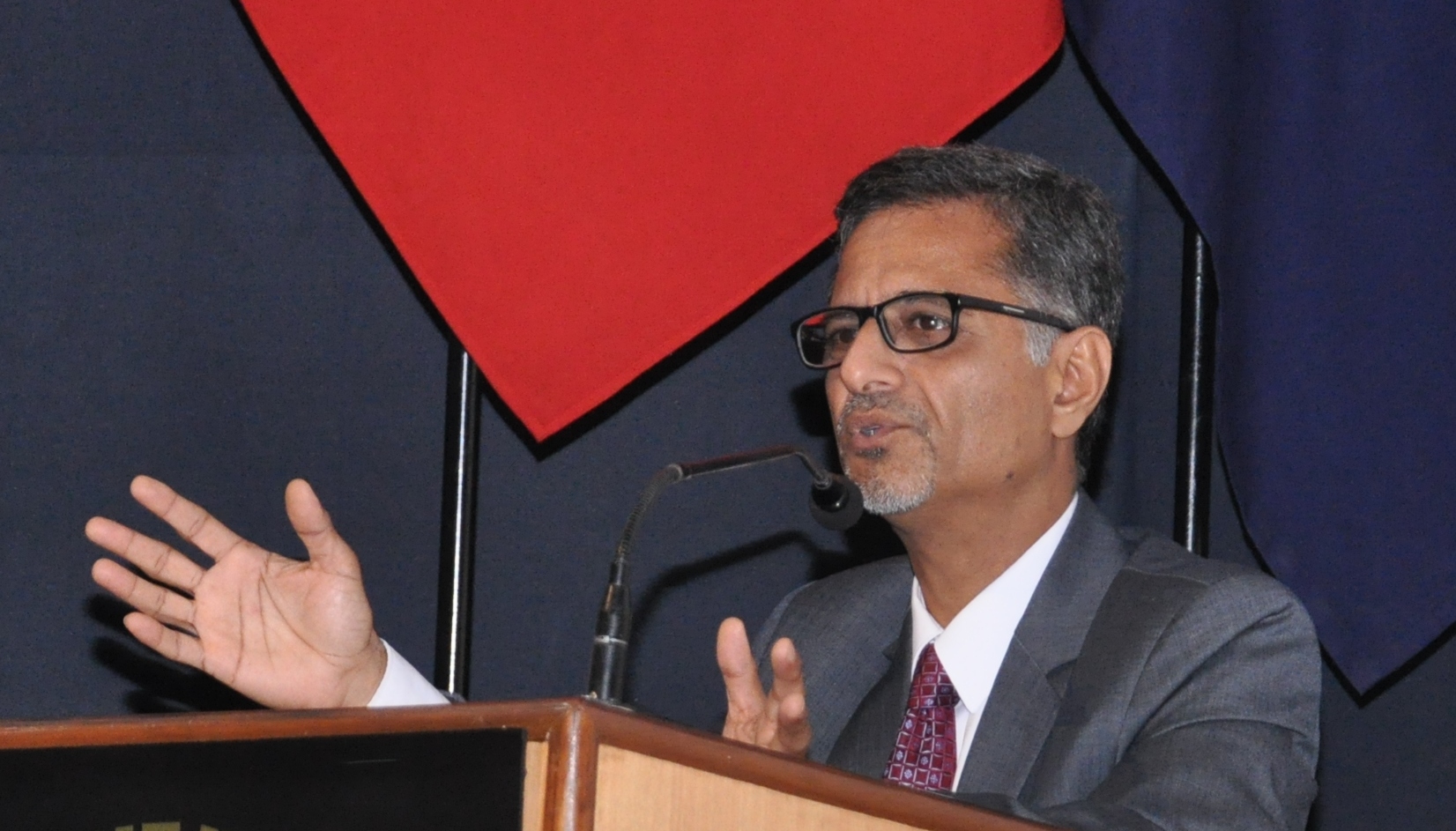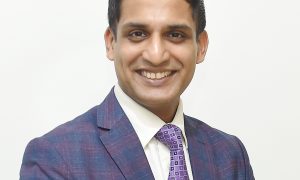Hormaz Daruwalla graduated from University of Bombay in 1987. He started his career as an Advocate with Crawford Bayley& Company, handling cases pertaining to indirect tax under Mr Dadi Engineer.
In the year 1992, Hormaz started his practice as a Counsel at the Bombay High Court and joined the Chambers of Senior Advocate Mr Atul Setalvad.
Hormaz is well respected and is a specialist in the fields of customs, central excise, service tax, foreign trade policy, special economic zones, anti-dumping, VAT and other local levies. He is particularly sought for his opinions generally on law and on the subjects he specialises in. His experience in advising clients on issues pertaining to indirect tax litigation, structuring, planning and other related issues makes him a popular lawyer among corporates. What makes him special is his ability in arguing cases before different fora including the High Courts and the Supreme Court of India.
In this interview, he talks to us about:
- Importance of Indirect taxation as a subject for law students.
- Is specialisation a good thing in today’s professional world.
- What does it take to be a good indirect tax lawyer.
- Steps to prepare for a difficult case.
Most of our readers are young lawyers and law students. How will you introduce yourself to them?
I am just one of them but only have been around a bit longer. The challenges they face today, I face too. The excitement and energy they feel, I experience too. Over the years the choices I’ve made based on my thinking has determined who and where I am in my personal life as well as my professional career today. I don’t regret the choices I made but will always say I could’ve done better though.
Were you always clear about your career plans considering you pursued commerce and went on to graduate in law from University of Bombay?
I started with the LLB course at the Government Law College, Mumbai in 1984. At the same time, I also enrolled for the Company Secretaries course of the Institute of Company Secretaries of India. In 1987, I completed the LLB course, enrolled for the LLM course and was in my final group of the Company Secretaries course. During this period there was only one thing that I was certain about, which is that I wanted to become a Counsel. I had no clue of what subject of Law I would, if at all, specialise in. In those days we never had an opportunity to test, check, see and feel the subject you would make a career of. There were no internships as we have them today, but all I had was an open mind and the determination to work hard to become a Counsel. Those were the days when one had to appear in matters in Court and one needed a certain basic understanding of the working of the system. Working in a Law Firm would be the best training ground to get that basic understanding. My batch mate and good friend Rohan Shah, now Senior Partner at Economic Law Practices, who had articled at Crawford Bayley & Company told me about a vacancy there. Their Senior Partner, Mr Dadi Engineer was a leading expert in Central Excise and Customs Law and needed the services of an Advocate Assistant. So I joined Crawford Bayley & Co and I remember the monthly remuneration used to be Rs 1,680/- (and this was before ‘tax deduction at source’ days).Indirect Tax was something new to me as the LLB course did not teach us even a word about it. I didn’t know if I’d like it or have the affinity for it or be able to cope with it or had the aptitude for it. But, as I said, nothing else mattered other than getting an opportunity to get on my race track to become a Counsel.
What responsibilities you were entrusted with in Crawford Bayley & Company?
My three years in that Crawford Bayley & Company was perhaps one of the most important periods in my professional career. It is here that I learnt a lot of what I know today. Those were the basics and the fundamentals. The systems, organisational skills, planning processes and most importantly my thinking process on issues of Law, were all formed at this stage. Under Mr Engineer I learnt to draft replies to notices and appeals. I soon started appearing before Departmental Officers and even the Customs, Excise and Gold (Control) Appellate Tribunal as it then was. Mr Engineer gave me a free hand at appearing and drafting. During this time I also got a great deal of experience in giving legal opinions on issues pertaining to Indirect Tax, as also structuring of businesses. But I must mention one thing that I practiced then which I am very glad I did and from which I have abundantly benefited, i.e. I have never said no to any kind of work given to me. This is something that I would always advise students and lawyers at least in the early years of their career.
Please share your experience with Senior Advocate Mr Atul Setalvad.
At the end of three years, I started as a Counsel in the Chamber of Senior Advocate Atul M Setalvad, as Junior to Senior Advocate Darius B Shroff. Atul Setalvad was a father figure to all of us. Atul (he insisted we all call him by his first name) was known for his crisp, concise, lucid and extremely effective drafting. He had the ability of breaking down extremely detailed and confusing issues into short, crisp and simple issues and he would get to the heart of the matter within no time.“Get your facts right first” he would say. Then study what the Law is, then apply the Law to the set of facts and only then look for authorities and precedents. He would be critical of people, who had such an obsession for precedents, that no sooner than you state a problem they rush off to look for a precedent. He also taught us never to argue the unarguable. This and much more is what I learnt in that Chamber. More importantly, it was a great place to learn lessons in honesty, integrity and humility. The skills and abilities that I acquired at Crawford Bayley & Company got honed, polished and further refined in this Chamber. I continued as a Counsel until October 2014 and during this period I appeared with the same enthusiasm and preparation before the junior most officer of the Excise and Customs Department as I would when I appeared before the Hon’ble Supreme Court of India.
What was it that moved you to join Khaitan & Co after many years of being a Counsel?
Khaitan & Co has an Indirect Tax Team of over 15 people spread over Mumbai, Delhi, Kolkata and Bengaluru. The Firm wanted the benefit of my experience of appearing before the Supreme Court and the High Courts in high-value matters. As I had this expertise, it was a good choice for me. Over the last one and a half years I have enjoyed working with the team and appeared in matters before the Supreme Court, various High Courts and the Customs, Excise and Service Tax Appellate Tribunal. I am thoroughly enjoying every moment with people more wonderful than I can imagine and having the best of both, Court work as well as Chamber practice.
At Khaitan & Co we have the best of cultures and I needn’t stress more but only say that it’s a respectable law firm based on values of fairness, integrity, diligence and responsibility and part of its ambition statement is “Earn we should but with dignity and pleasure.” Wow!
How important is Indirect Taxation as a subject for law students?
Sixty percent of all Government revenues at the Centre are from Indirect Taxation. That will give you an indication of how important the subject of Indirect Tax is in today’s environment. Every business, profession or calling today experience challenges and problems with taxation and in particular Indirect Taxation. Indirect Tax is becoming the biggest single cost for most businesses and if they can save a couple of percentages on that, that’ll mean a lot of money to add to their profits. With the negative list regime under Service Tax, there is hardly any activity that does not involve taxation. Corporates are constantly seeking advice and assistance on issues of taxation, which issues are getting more complicated by the day. Every amendment, even if for the purpose of simplification, poses further issues. As I see it, whichever subject of law that a young lawyer may pursue as a career, a basic understanding of Indirect Taxation is an absolute must.
Which field of law will you advise law students to pursue?
Over the years I have met many law students and young lawyers who find the subject of taxation per se boring. To them I say, “It’s all in your head”, which is a fact. Students today have such good opportunities to test what they would be best at and internships are fantastic opportunities to get over these mental blocks. Very often a student may have a special liking towards a certain subject and may have the aptitude and affinity for that subject. The student may also be indifferent or have a dislike towards another subject. This indifference or dislike is mostly due to ignorance and lack of exposure in the right manner to that subject of law. I would say to such a student to not waste his internship opportunity on the subject he knows, he has a liking, aptitude and / or affinity for, but instead use the opportunity to actually intern in a subject that he is wary about. This way he can get a more accurate and correct picture of the subject and can then make a learned decision about his career choice. The different subjects in this field of law are vast and varied. It is only the person himself who needs to decide his choice of subject. It would be rather foolish for anyone else to make this choice for him. I would advise the student, in making this choice, to necessarily have an open mind free from blocks and prejudices caused mainly by lack of knowledge about a subject. His decision will ofcourse be guided by his own likes, dislikes and which will be in line with his character and attitude. And I say that he will be successful in anything he does so long as he has the right mental attitude and is prepared to work diligently an thirdly of course he must enjoy what he does.
Do you think specialisation is a good thing in today’s professional world?
It does not matter really whether one specialises or has a general all round practice. What is important though is that you can equally excel in any subject of law that you may choose. I would say that ofcourse today is the age of specialisation whether it is in the medical profession or in our legal profession. At Khaitan & Co too, which is the best full-service law firm, each area of practice is handled and headed by specialists in that particular area of law.
I feel that very often, like it happened to me, a young lawyer may not specialise out of choice but may find himself guided into a particular subject and before he knows it, he is branded as a specialist in that subject. It is that branding that ensures that he gets work only relating to that particular subject of law which further confirms his specialisation.
How can one gain expertise in Indirect Tax? What does it take to be a good Indirect Tax lawyer?
Indirect Tax is a subject that is very volatile as well as dynamic. This requires the practitioner to constantly be appraised of the changes happening almost every day. A lazy attitude in this regard will only mean instant death, so to speak. Only his constant updating of knowledge and information and ofcourse repetition can ensure expertise in this field. This I would say will also be true for any other practice area, but it’s more so true for Indirect Tax. The student or young lawyer desiring to take up Indirect Tax as his area of practice must necessarily be prepared to read a lot of material whether it is the constant changes or Government policies or Court decisions. And remember, there are no free lunches!
What has been your strategy to deal with errors and mistakes?
The first step I believe one needs to take to deal with errors and mistakes is to admit and acknowledge them. Unless this happens, one can never go any further. Once acknowledged, the next step is to understand how and why the mistake happened. This will enable the person to eliminate the cause and consequently future mistakes. Mistakes are a very vital part of the learning process, one must understand that the day you stop making mistakes you stop learning and you stagnate.
What steps do you take to prepare for a difficult case?
Preparing for a difficult case is something that I have learnt to enjoy and believe me in this profession and in the subject of Indirect Tax one can get ample opportunities for such enjoyment. To start with one needs to meet the client and listen to him carefully and attentively while he tells you all about his case. This is something where many people lack. Make copious notes and perfectly understand the facts. The next stage would be to study the various provisions of law that are applicable to the facts and then understand and set out precisely what issues arise in the matter. The wheat needs to be separated from the chaff, so to speak. It is only then, after breaking up the entire case into bits and getting to the heart of the issue, that one can start figuring out a solution or answer to the issue. The answer could be either a practical one or found in interpreting the law in a particular manner by application of well-founded principles or a mix of both. The last stage would be to support the submissions by authoritative references or Case Law as applicable.
What are the preferred legal issues you like to work on? Do you have any hobbies that help you unwind after a long day at work?
As I said I stopped having any preference for any particular kind of legal issues. What interests me though are issues that have an impact on public at large. I have always said to the tax collector “Tax if you must, but only with the authority that you may have and with the dignity that is expected of you”. In the same breath, I also say to the tax payer “Pay your taxes honestly and avoid if you pay your taxes only within limits a decent citizen would”. There is a fine line between tax avoidance and tax evasion and many a tax avoidance schemes can very well fall within the category of tax evasion. My advice to clients has always been to keep litigation to the minimum.
All said and done, I thoroughly enjoy what I am doing now at Khaitan & Co, but do really miss what I used to do many years ago in often appearing for NGOs in environmental matters. I do try to pursue my passion for the outdoors with an occasional trek or hike and I always look forward to a long walk in the evenings to help me unwind.
What are your views about the upcoming GST regime?
The GST regime is something that has attracted a lot of speculation. I wouldn’t want to add to this. Though I will say that it is a brilliant move in the right direction made by the previous Government and we all eagerly await it’s coming into effect, I don’t see it happen in the near future. When it does come into effect, it will have many advantages to businesses. However, in the initial years all prices will shoot up considerably and will take considerable time to stabilise. Although there might be provisions for rationalisation of the tax, as I said earlier any change in the law substantive or procedural will bring up a new series of litigation which will continue for several years until settled finally. This may be good news for young lawyers.
What would be your parting message for your readers?
Start getting lucky and courageous in your career.
You might wonder what I am talking about but I do not subscribe to the conventional dictionary meaning of “luck” which is “Success or failure apparently brought by chance rather than through one’s own actions.” I would think this is an apt definition of “gambling” but not of “luck”. But I do subscribe to what the great Roman Philosopher Seneca had to say. He said, “Luck is what happens when preparation meets opportunity.” Opportunities come by every person in equal amounts but it’s only the one who is prepared and ready for it, who can actually see them and make good use of them. It is he who is “lucky”. The truth is, we make our own luck and the difference between lucky and unlucky people is their level of preparedness; not only of everything else but most importantly prepared with the right mental attitude.
Everything is constantly changing; that’s inevitable. Change will happen whether you like it or not. Don’t be afraid to make choices. The wiser thing to do is to model your choices around the change to your advantage or else the change may not be to your liking.
As far as getting lucky is concerned, start preparing for it by developing the right mental attitude.
Get up, Get going and Good luck!
























